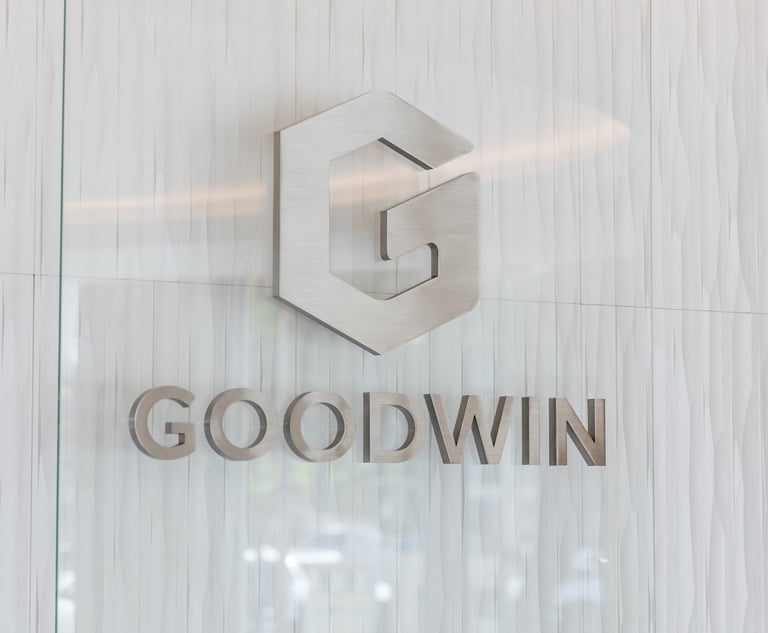Branding and the Metaverse
Use of trademarks in the metaverse can be an untapped resource to garner profit and expand the universe of consumers; however, the new format carries risks and opportunities for unauthorized third parties to try to profit off well-known names or diminish the value of a brand.
March 25, 2022 at 02:00 PM
9 minute read
 The rise of the "metaverse" raises new issues for brand owners in the procurement, protection, and enforcement of valuable trademark rights. Branding via its virtual worlds and economies, where digital assets are experienced, sold, and traded and users can interact with a computer generated environment, requires a shift in thinking about traditional trademark concepts applied to tangible goods and services to establishing a presence within evolving digital media ripe for licensing and name recognition. Use of trademarks in the metaverse can be an untapped resource to garner profit and expand the universe of consumers; however, the new format carries risks and opportunities for unauthorized third parties to try to profit off well-known names or diminish the value of a brand.
The rise of the "metaverse" raises new issues for brand owners in the procurement, protection, and enforcement of valuable trademark rights. Branding via its virtual worlds and economies, where digital assets are experienced, sold, and traded and users can interact with a computer generated environment, requires a shift in thinking about traditional trademark concepts applied to tangible goods and services to establishing a presence within evolving digital media ripe for licensing and name recognition. Use of trademarks in the metaverse can be an untapped resource to garner profit and expand the universe of consumers; however, the new format carries risks and opportunities for unauthorized third parties to try to profit off well-known names or diminish the value of a brand.
All entities would be prudent to be part of the evolution of the metaverse by broadening trademark policing strategies, strategizing a virtual presence, and seeking protection of the virtual use of their trademarks.
Why Are Trademark Rights Important?
Trademarks are fundamental to the value of a brand. As a foundation, trademark protection offers opportunities to generate more income through licensing and good will, and enhances brand image and reputation. In the metaverse, trademarks may designate a wide range of virtual products such as virtual clothing, accessories, food, cosmetics, sporting goods, and many products we encounter in our tangible lives. Also, trademarks can be associated with the design of customized versions of avatars, products, or unique artwork. Other uses may involve services such as online marketplaces for the provision of goods, virtual cafes, art galleries, concert halls, event spaces, and sporting events, and many more.
This content has been archived. It is available through our partners, LexisNexis® and Bloomberg Law.
To view this content, please continue to their sites.
Not a Lexis Subscriber?
Subscribe Now
Not a Bloomberg Law Subscriber?
Subscribe Now
NOT FOR REPRINT
© 2025 ALM Global, LLC, All Rights Reserved. Request academic re-use from www.copyright.com. All other uses, submit a request to [email protected]. For more information visit Asset & Logo Licensing.
You Might Like
View All
Testing The Limits of “I Agree”: Court of Appeals Examines Clickwrap Arbitration Agreements
13 minute read
Change on the Horizon?: 2025 Begins With Numerous Patent Bills Pending
8 minute read

IP at the Frontier of AI: Navigating the New Landscape
Law Firms Mentioned
Trending Stories
- 1Trump's DOJ Delays Releasing Jan. 6 FBI Agents List Under Consent Order
- 2Securities Report Says That 2024 Settlements Passed a Total of $5.2B
- 3'Intrusive' Parental Supervision Orders Are Illegal, NY Appeals Court Says
- 4Federal Laws Also Preempt State's Swipe Fee Law on Out-of-State Banks, Judge Rules
- 5Judge Grills DOJ on Trump’s Birthright Citizenship Executive Order
Who Got The Work
J. Brugh Lower of Gibbons has entered an appearance for industrial equipment supplier Devco Corporation in a pending trademark infringement lawsuit. The suit, accusing the defendant of selling knock-off Graco products, was filed Dec. 18 in New Jersey District Court by Rivkin Radler on behalf of Graco Inc. and Graco Minnesota. The case, assigned to U.S. District Judge Zahid N. Quraishi, is 3:24-cv-11294, Graco Inc. et al v. Devco Corporation.
Who Got The Work
Rebecca Maller-Stein and Kent A. Yalowitz of Arnold & Porter Kaye Scholer have entered their appearances for Hanaco Venture Capital and its executives, Lior Prosor and David Frankel, in a pending securities lawsuit. The action, filed on Dec. 24 in New York Southern District Court by Zell, Aron & Co. on behalf of Goldeneye Advisors, accuses the defendants of negligently and fraudulently managing the plaintiff's $1 million investment. The case, assigned to U.S. District Judge Vernon S. Broderick, is 1:24-cv-09918, Goldeneye Advisors, LLC v. Hanaco Venture Capital, Ltd. et al.
Who Got The Work
Attorneys from A&O Shearman has stepped in as defense counsel for Toronto-Dominion Bank and other defendants in a pending securities class action. The suit, filed Dec. 11 in New York Southern District Court by Bleichmar Fonti & Auld, accuses the defendants of concealing the bank's 'pervasive' deficiencies in regards to its compliance with the Bank Secrecy Act and the quality of its anti-money laundering controls. The case, assigned to U.S. District Judge Arun Subramanian, is 1:24-cv-09445, Gonzalez v. The Toronto-Dominion Bank et al.
Who Got The Work
Crown Castle International, a Pennsylvania company providing shared communications infrastructure, has turned to Luke D. Wolf of Gordon Rees Scully Mansukhani to fend off a pending breach-of-contract lawsuit. The court action, filed Nov. 25 in Michigan Eastern District Court by Hooper Hathaway PC on behalf of The Town Residences LLC, accuses Crown Castle of failing to transfer approximately $30,000 in utility payments from T-Mobile in breach of a roof-top lease and assignment agreement. The case, assigned to U.S. District Judge Susan K. Declercq, is 2:24-cv-13131, The Town Residences LLC v. T-Mobile US, Inc. et al.
Who Got The Work
Wilfred P. Coronato and Daniel M. Schwartz of McCarter & English have stepped in as defense counsel to Electrolux Home Products Inc. in a pending product liability lawsuit. The court action, filed Nov. 26 in New York Eastern District Court by Poulos Lopiccolo PC and Nagel Rice LLP on behalf of David Stern, alleges that the defendant's refrigerators’ drawers and shelving repeatedly break and fall apart within months after purchase. The case, assigned to U.S. District Judge Joan M. Azrack, is 2:24-cv-08204, Stern v. Electrolux Home Products, Inc.
Featured Firms
Law Offices of Gary Martin Hays & Associates, P.C.
(470) 294-1674
Law Offices of Mark E. Salomone
(857) 444-6468
Smith & Hassler
(713) 739-1250






